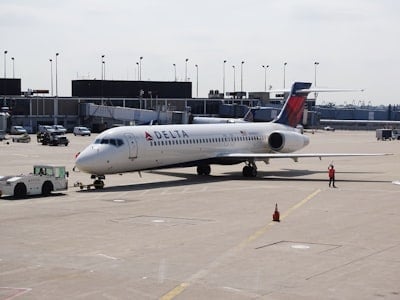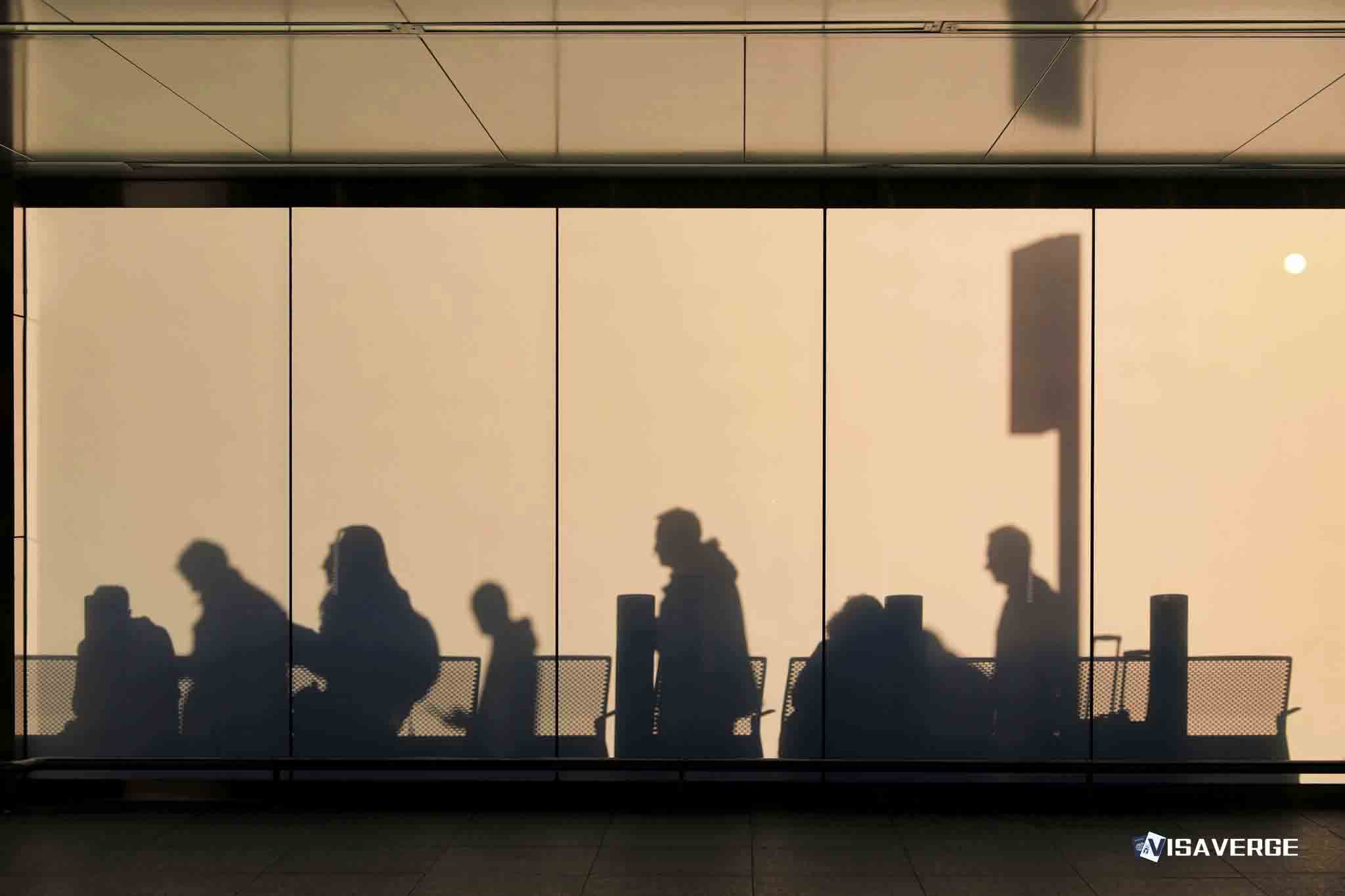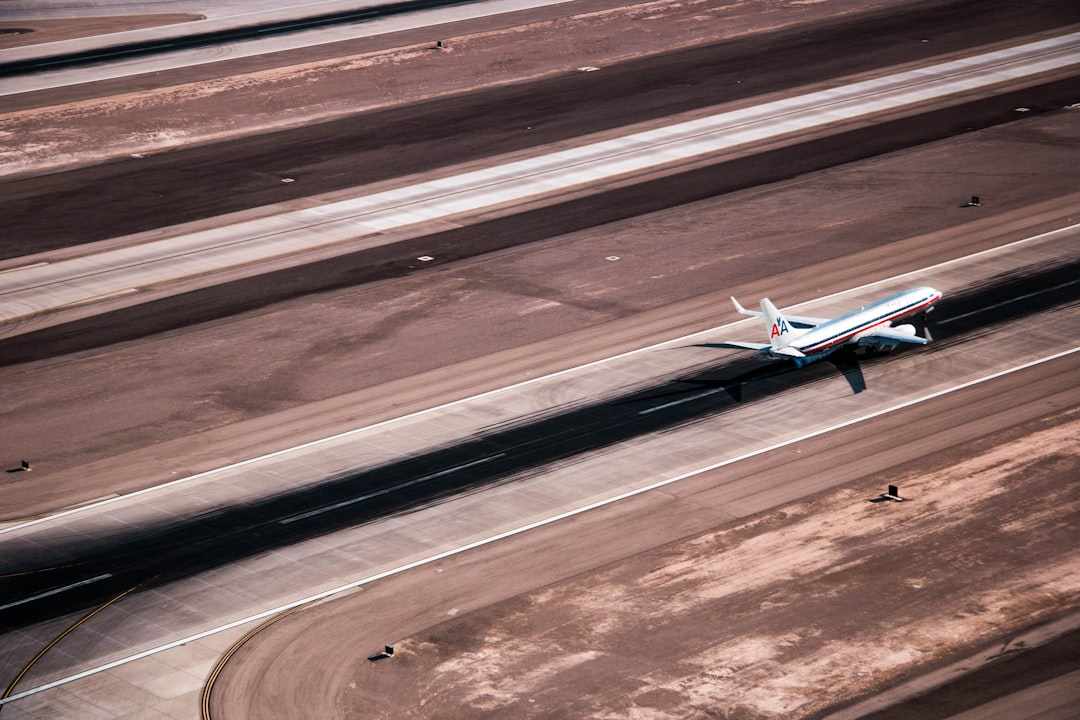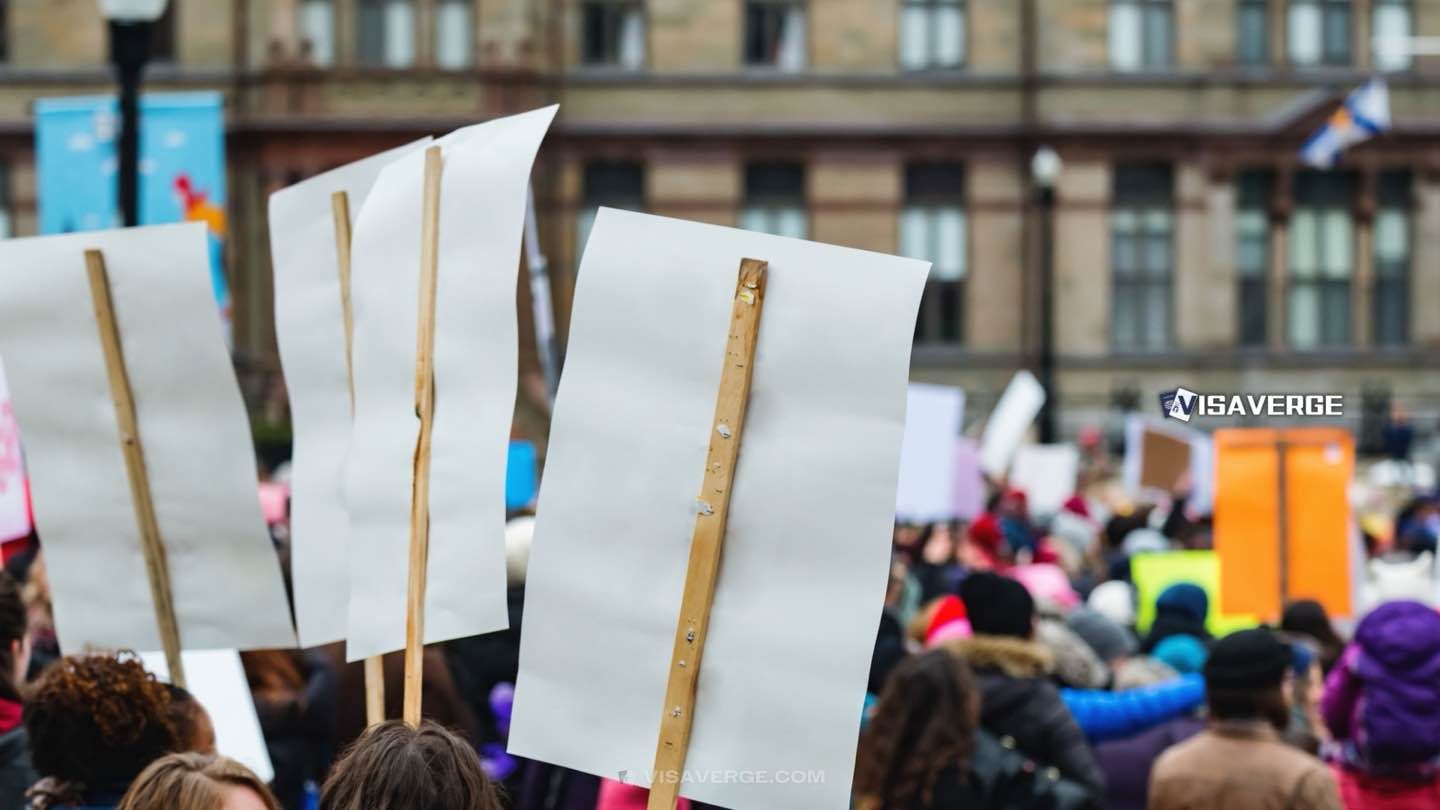Key Takeaways
• Wicliff Yves Fleurizard sneaked onto Delta flight #1683 using a stolen boarding pass on March 17, 2024.
• He pleaded guilty to federal stowaway charges on March 11, 2025, and was sentenced May 21, 2025.
• Judge sentenced Fleurizard to time served, three years supervised release, and a $5,000 fine.
A Texas man has been sentenced after sneaking onto a Delta Air Lines flight at Salt Lake City International Airport, drawing attention to airport security and what can happen when protocols are not followed. Wicliff Yves Fleurizard, 27, of Leander, Texas, pleaded guilty to a federal stowaway charge and received his sentence on May 21, 2025, by U.S. District Court Judge David Barlow. This unusual case sheds light not only on airport safety but also on how the justice system handles those who break airline rules.
How the Delta Stowaway Incident Unfolded

On March 17, 2024, Wicliff Yves Fleurizard made a series of risky choices that eventually led to his arrest. Fleurizard entered Salt Lake City International Airport using a Southwest “buddy pass,” which is a special pass given to airline employees or their friends and family. He first tried to fly standby on two Southwest flights but was not able to get on either one. After these failed attempts, he made his way to the Delta terminal, where he decided to try a different approach.
Security cameras at Salt Lake City International Airport captured Fleurizard as he walked around and secretly took photos of the boarding passes of other travelers. Without their permission, he snapped pictures of these passes—including one that belonged to a young girl, which has raised special concerns about privacy and safety. After collecting these photos, he chose to use the boarding pass of the minor passenger to board Delta flight #1683, which was headed to Austin, Texas.
Once on the plane, Fleurizard hid inside a bathroom, trying not to be detected. As the Delta flight was taxiing—that is, moving on the runway, getting ready for takeoff—he stepped out of the lavatory. A flight attendant saw him and, after counting seats, realized something was wrong. There were no extra seats available. This raised questions because every seat should have a ticketed passenger, but all seats were full—plus one unexpected person. The crew asked Fleurizard to show his seat, and he could not. That’s when his presence as a Delta stowaway was discovered.
The pilots stopped the plane and went back to the gate. Police at Salt Lake City International Airport arrested Fleurizard. When questioned, he reportedly said he was only trying to get home to Leander, a suburb near Austin, Texas.
Official Reaction and Legal Response
Wicliff Yves Fleurizard’s actions led to serious legal consequences. On March 11, 2025, he pleaded guilty in federal court to being a stowaway on an aircraft. This charge carries tough possible penalties, including up to five years in prison and a fine of $250,000. However, after discussions with prosecutors, Fleurizard reached a plea agreement.
Judge David Barlow sentenced Fleurizard to time served—meaning the roughly six months he had already spent in jail counted as his formal punishment. Along with this, he will face three years of supervised release, during which he will be monitored by officials and must follow strict rules. He was also ordered to pay a $5,000 fine.
Authorities Speak Out
The case made national news and led several officials to share their opinions and warnings:
- Special Agent in Charge Mehtab Syed of the Salt Lake City FBI pointed out, “Mr. Fleurizard’s actions were not only disruptive to passengers, it also compromised the safety and security for all on board.”
- Acting U.S. Attorney Felice John Viti of the District of Utah stated, “Today’s sentence sends a clear message to would-be offenders that the District of Utah will not tolerate crimes committed in and around our vital airports. Airport crimes will be prosecuted.”
Their statements highlight how seriously authorities take crimes like this, and they also show the importance of keeping airports safe.
What Does Being a Stowaway Mean?
In airline terms, a stowaway refers to someone who boards an aircraft without a valid ticket or permission. This is different from someone who sneaks onto a ship or in a cargo hold. In modern airports, sneaking onto a plane is rare due to tight security, but, as this incident shows, it can still happen.
The federal charge of being a stowaway is a felony. It’s treated with special seriousness because of the potential risk to everyone on board and because breaking airport rules could mean that other problems go unnoticed.
Security at Airports: What This Case Reveals
Salt Lake City International Airport, like most major airports, has many layers of security. There are TSA checkpoints, boarding pass scanners, security cameras, and trained staff watching passengers. Yet, Fleurizard was able to get past these protections by taking photos of others’ boarding passes. This raises important questions:
- How easy is it to get past airport security with someone else’s boarding pass?
- Are airlines and airport staff trained enough to spot such incidents quickly?
- What more can be done to stop copycat crimes?
Analysis from VisaVerge.com suggests that the use of digital and paper boarding passes can sometimes be a weak spot. For example, if someone can get a picture of another person’s boarding pass, they could, in rare cases, use it to pass through the gate.
The Role of Airline Staff and Technology
This Delta stowaway case puts the spotlight on airline employees, especially gate agents and flight attendants. In this situation, it was a simple headcount that exposed the extra passenger. Newer technologies, such as facial recognition and digital pass syncing, are supposed to make it harder for this kind of thing to happen. However, as this event shows, even with these tools, the human element is key because staff must notice little things that don’t add up.
Efforts to improve airport security continue. The Transportation Security Administration (TSA) and airlines are always updating their processes. For more information about current airport security rules, you can visit the official TSA website.
The Impact on Travelers and the Industry
Many travelers were startled by the news of a Delta stowaway being able to get on a flight. Fear and distrust can spread quickly if people believe that security steps are not enough. For families and parents, the detail about Fleurizard using a minor’s boarding pass is especially worrying. This incident could make travelers feel less safe, at least in the short term.
For the airline industry as a whole, this story is a reminder that even a single failure can have big impacts. Airlines work hard to show passengers that flights are safe, and any hint of a problem means quick investigations and new training sessions for staff.
The Legal System’s Response to Stowaway Crimes
Wicliff Yves Fleurizard’s sentence sets a benchmark. Some people expected a longer prison term, since the law allows up to five years. But the judge instead chose time served, likely taking into account the fact that no direct harm was done and Fleurizard’s claim that he simply wanted to get home. In addition, three years of supervised release means that authorities will keep an eye on him for some time.
The $5,000 fine sends another clear signal: even if a person is not given a lengthy prison sentence, they will still pay a price for breaking the law.
Those who watch the legal system might discuss whether this was a fair outcome. Some say the punishment should be stronger to discourage others from trying the same thing, while others believe the plea deal was fair, since there was no injury or clear plan to cause harm.
Air Travel Security: Past Cases
While this story stands out, it is not the first time someone has managed to sneak onto a plane in the United States 🇺🇸 or in other countries. However, with better technology and more attention on airline safety since 2001, these stories have become much less common. Every time one comes to light, airport officials respond by re-examining procedures to close any security gaps.
By looking at past and present cases, airline companies and airport authorities can better understand the ways people try to avoid following the rules—and adapt accordingly.
Lessons for the Future
The Delta stowaway case involving Wicliff Yves Fleurizard has led people in the industry to talk openly about new ways to protect against similar events. Here are some key lessons:
- Train staff to spot unusual behavior, such as someone without a seat or acting nervous at the gate.
- Remind travelers to guard their boarding passes and personal information, especially when in busy public places.
- Use better digital checks to match passengers’ IDs to their boarding passes. This helps spot anyone using a copied or borrowed pass.
- Make sure security cameras and airport layouts make it hard to wander between terminals without being noticed.
For many, this case raises another question: Should the penalties for stowing away be tougher, even when no harm was done? Or is the real value in catching offenders quickly and using the lessons learned to stop future incidents?
Guidance for Passengers
What can ordinary travelers do to help keep airports safe? Here are a few simple tips:
- Keep your boarding pass with you at all times and do not throw it away until you leave the airport.
- Do not let anyone take photos of your documents or screens showing sensitive travel information.
- If you see something odd—such as someone acting suspicious or a person loitering without a ticket—tell a staff member or security guard.
- Stay alert and encourage others, especially minors, to be careful with personal items like boarding passes and IDs.
Conclusion: What This Means Going Forward
The Delta stowaway incident involving Wicliff Yves Fleurizard at Salt Lake City International Airport serves as a strong warning to anyone thinking about breaking the rules. It also gives airport and airline officials a real-life example to use in training and improving security. As authorities pointed out, these types of crimes will be noticed and prosecuted.
Travelers, too, play a role in helping keep flights safe. While airports get better tools and processes, your careful actions can make a difference. For those interested in finding out more about current flying and airport safety rules in the United States 🇺🇸, visit the TSA’s official page on airport security.
Airport safety depends on everyone—from the travelers going on vacation to the staff guiding planes. High-profile cases like that of Wicliff Yves Fleurizard, the Delta stowaway at Salt Lake City International Airport, remind all of us just how important it is to follow the rules and pay attention, no matter how many safeguards are already in place.
Learn Today
Stowaway → A person who boards an aircraft without a valid ticket or permission, considered a federal felony.
Buddy Pass → A special boarding pass given to airline employees’ friends or family allowing standby flights.
Supervised Release → A court-ordered period of monitoring following prison time, with strict behavioral conditions.
TSA → Transportation Security Administration, the US agency responsible for airport security and passenger screening.
Plea Agreement → A negotiation where the defendant pleads guilty for a lighter sentence or reduced charges.
This Article in a Nutshell
In March 2024, Wicliff Yves Fleurizard stowed away on a Delta flight at Salt Lake City Airport, exploiting boarding pass photos. Caught mid-flight, he pleaded guilty and received time served plus supervised release, highlighting airport security vulnerabilities and the legal consequences of breaching airline protocols.
— By VisaVerge.com
Read more:
• Hawaii flight routings to shift after Alaska Airlines–Hawaiian Airlines Merger
• Single African Air Market: West African Leaders Drive Aviation Reform
• Alaska Airlines Shifts Power to Portland International Airport
• ICE Enforcement Operation Nets 189 Arrested in D.C.
• American Airlines Expands Seasonal Routes to Europe













